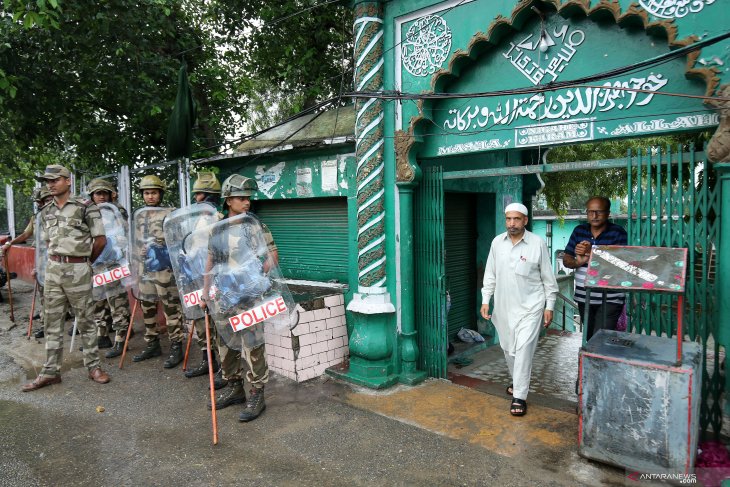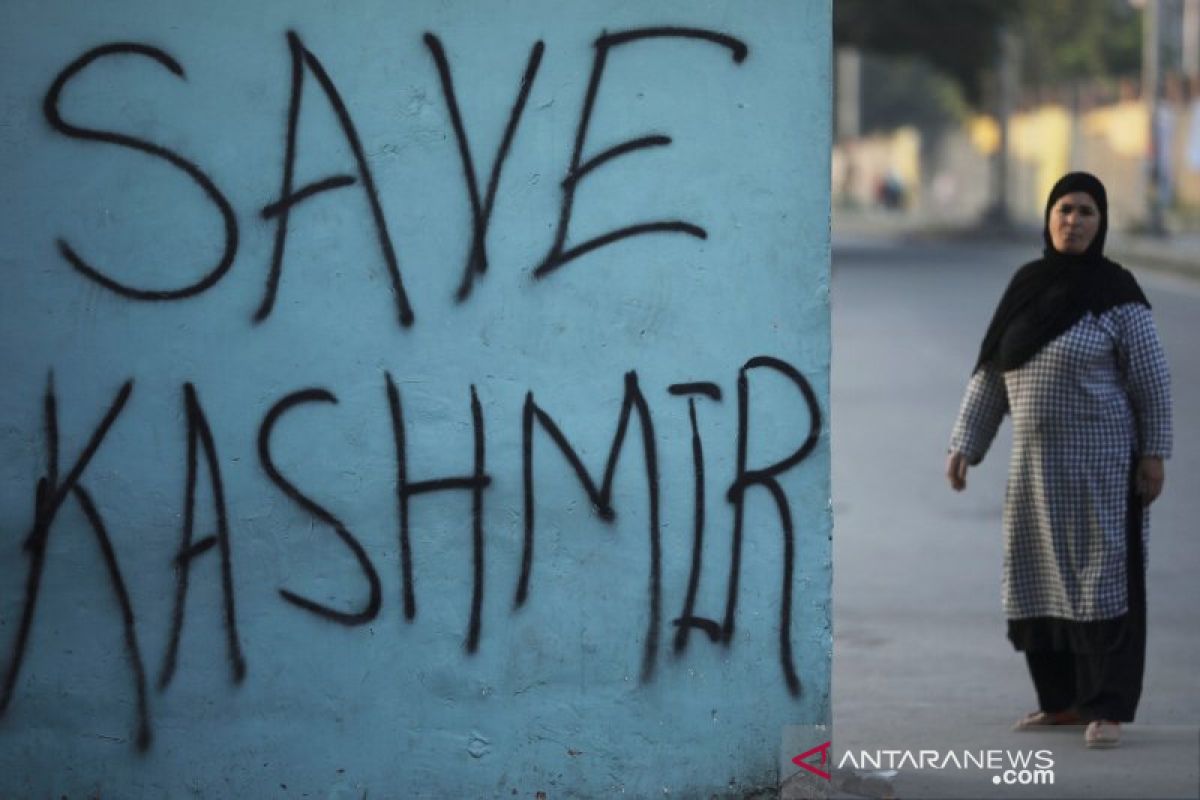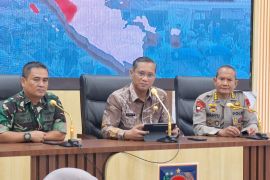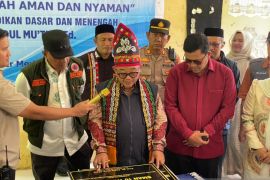It is an experience, a state of mind, or perhaps an ideal.
Located in the Himalayas, Kashmir has abundant natural charm to enthrall.
Its beauty is apparent from its snow-capped peaks, majestic valleys, alpine-like forests, crystal-clear lakes, sparkling glaciers, and the warmth and hospitality of Kashmir.
The natural beauty of Kashmir has earned it the title of heaven on earth.
Kashmir is called heaven on earth owing to its natural beauty.
However, behind that pristine beauty of Kashmir lies a story of bloodshed due to the struggle for territory.
Annually, the government and people of Pakistan at home and abroad observe Kashmir Solidarity Day on February 5 to mark continued support for the Kashmiri people struggling for the right of self-determination.
Chairman of the Kashmir Solidarity Forum, Dr Zahir Khan, stated that the Kashmir problem would not have arisen if the Indian government had kept its own promises when the British colonial government granted independence of the Indian continent in 1947 to become two countries: India and Pakistan.
At that time, the British, Indian, and Pakistani governments agreed that the separation of India and Pakistan was based on the majority of religions professed by each state.
Based on the terms of separation, Kashmir should automatically become part of the Pakistani state that was proclaimed on August 14, 1947.
In fact, the people of Kashmir celebrated Pakistan's independence on August 15, 1947, and declared to join Pakistan since majority of the population is Muslim.
However, Kashmir, which at that time was led by a Hindu king, refused the will of its people to join Pakistan.
History has recorded that India and Pakistan fought for the Kashmir region during the India-Pakistan War in 1947 and during the Kargil War in 1999.
Pakistan has been vociferous in proclaiming that it will continue to defend Jammu and Kashmir, especially after India's keenness to change the demographics of the two regions.
Quoting the recent illegal attempts aimed at changing the demography of Jammu and Kashmir by the Indian Government, Ambassador of Pakistan to Indonesia Muhammad Hassan conveyed Pakistan’s strong rejection to such illegal acts and echoed the Government of Pakistan’s resolve to support the case of Jammu & Kashmir at all forums.
"Pakistan tries its best to protect the lives and properties of the Kashmiris in Kashmir, the Indian-occupied territory," he affirmed.
Pakistan urged the United Nations and international communities to apply force on India to stop repression in Kashmir.
"There are serious human rights violations, sexual harassment, and violence against women and children in Kashmir. It is not about the religion but it is about human rights. Obligation of the international communities to force India to stop repression in Kashmir, go to the table, and discuss with Pakistan to solve the problems," Ambassador Muhammad Hassan emphasized.
Pakistan's keenness to resolve all problems with India, including the Jammu and Kashmir dispute, through dialog, is in accordance with the UN Security Council resolutions.
Pakistan invited other countries, especially Indonesia, as the Muslim-majority nation in the world, to be concerned about Kashmir issues.
"The best thing that Indonesian students and the rest of world can do to help Kashmir people is to raise awareness about the issue of Kashmir," the ambassador stated.
Hassan believes that the best way for Kashmir to gain freedom was through the implementation of the United Nations Resolutions.
"Give Kashmiri people the right to decide their own future. Let them decide whether they want to join Pakistan or want to be independent state," the ambassador stressed.

Since India repealed Article 370 on August 5, 2019, thousands of Kashmiri politicians, activists, and academics were allegedly detained under the Public Safety Act (PSA).
Meanwhile, the abrogation of Article 370 makes Jammu, Kashmir, and Ladakh, the new states of India from October 31, 2019.
"The loss of autonomy and the imposition of direct rule by the Government in New Delhi suggests that the people of Jammu and Kashmir no longer have their own government and have lost power to legislate or amend laws in the region to ensure the protection of their rights as minorities," Special Rapporteur on minority issues Fernand de Varennes and Special Rapporteur on freedom of religion or belief Ahmed Shaheed noted in a statement.
As Jammu and Kashmir had been India’s only Muslim-majority state, India granted them partial autonomy out of respect for the ethnic, linguistic, and religious identities of its people.
On August 5, 2019, the government unilaterally revoked its special status, and in May 2020, it passed the so-called Domicile Rules that remove protection for those in the territory.
The new laws override earlier ones that had granted the Kashmiri Muslim, Dogri, Gojri, Pahari, Sikh, Ladhaki, and other established minorities the right to buy property, own land, and access certain state jobs.
“These legislative changes may have the potential to pave the way for people from outside the former state of Jammu and Kashmir to settle in the region, alter the demographics of the region, and undermine the minorities’ ability to exercise effectively their human rights,” the experts stated.
Moreover, the number of successful applicants for domicile certificates that appear to be from outside Jammu and Kashmir raised concerns that demographic changes on a linguistic, religious, and ethnic basis had already begun.
The UN experts urged India to ensure the economic, social, and cultural rights of the people in Jammu and Kashmir along with their rights to freedom of expression and participation in matters affecting them.
Conflict
An assistant professor of International Relations at the Department of International Relations, Muhammadiyah University of Yogyakarta, Ali Maksum stated that Kashmir is related to Pakistan and India.
Both countries bear similarities in terms of the food, culture, and water. Pakistan and India have endured the conflict until now.
The conflict began when the sub-continent was divided into two countries. Kashmir has been the main cause of conflict. Kashmir was divided into three parts, with Pakistan, 35 percent; India, 45 percent; and China, 20 percent, according to Maksum.
"Under Akbar Zainul Abidin, Kashmir prospered through religious inclusivity. The Muslim rule ended in 1819 when the Sikh kingdom of Punjab captured the region from the oppressive afghan Durrani Empire. The Sikh kingdom implemented its own form of oppression," Maksum stated.
After the Anglo-Sikh war of 1845, the British East India Company annexed the land from the Sikhs. This was the start of the conflict.
As the British were hardly shy at distributing land that they seized without considering the indigenous people, the Kashmir valley was quickly sold to Hindu Dogra Raja Gulab Singh on the condition that he acknowledge the British government's supremacy.
The Singh family's rule was cruel and greedy. Kashmiri Muslims were subject to slave labor and heavy taxes and state violence, he stated.
"This was demonstrated in 1931 when 22 protestors were shot and killed at the trial of an anti-maharaja activist. The day is known as Martyrs' Day," Maksum noted.
According to the 1941 census, the state's population was 77 percent Muslim, 20 percent Hindu, and three percent others.
The Muslim-majority population suffered under the rule of Hindu Maharaja Hari Singh owing to high taxes and discrimination, according to Maksum.
Territorial disputes over the Kashmir region sparked two of the three major Indo-Pakistani wars in 1947 and 1965 and a limited war in 1999.
Although both countries have maintained a fragile cease-fire since 2003, they regularly exchange fire across the contested border, known as the Line of Control.
Both sides accuse the other of violating the cease-fire and claim to be shooting in response to attacks. An uptick in border skirmishes, which began in late 2016 and continued into 2018, killed dozens and displaced thousands of civilians on both sides of the Line of Control.
"Kashmir belongs to Pakistan because of its Muslim-majority population. Kashmir belongs to India because of the constitution during the rule of Hindu Maharaja Singh. The vote was never held in Kashmir," he noted.
He affirmed that both countries had attempted to resolve the conflict, though they faced numerous challenges.
Apart from being an inherent right, Kashmiri nationalism has a history older than both the Indian and Pakistani nation states. According to a survey by Al-Jazeera on March 12, 2020, young people in Kashmir want to establish an independent country, according to Maksum.
Related news: Pakistan embassy holds seminar to mark 'Kashmir Black Day'
Related news: Kashmir issue should be resolved through India-Pakistan dialogue: RI
Editor: Gusti Nur Cahya Aryani
Copyright © ANTARA 2021












